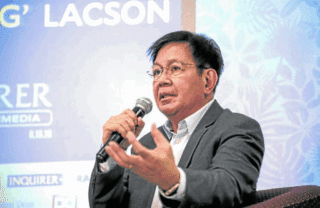Southeast Asian countries like the Philippines need to take up “much more aggressive measures” than current policies if they are to support the achievement of the Sustainable Development Goal of universal access to energy (SDG 7) , according to the UN Economic and Social Commission for Asia and the Pacific (Unescap).
The Bangkok-based UN agency said this was especially so amid inadequate levels of investments in renewable energy, “which is falling well short of required levels.”
“Decisive action by the region’s policymakers is needed in order to transition and expand energy systems to sustainably and equitably deliver modern energy services,” Unescap said in a statement.
The statement was released along with the “Regional Energy Trends Report 2020: Tracking SDG 7 in The Asean Region,” which examines the region’s progress toward achieving targets under SDG 7 in the areas of ensuring universal access to electricity and clean cooking, increasing the renewable energy share of the energy mix, and accelerating energy efficiency serves to illuminate the challenges leading up to 2030.
The report finds that several member-countries of the Association of Southeast Asian Nations have achieved 100-percent electrification. The Philippines is not included.
Also, clean cooking technology is being actively developed to phase out the use of polluting household solid fuels and renewable energy installations and production are on a strong upward trend.
But the report also noted that national advancements in these areas are highly varied, and the rates of progress are too slow in many cases to fully realize the 2030 vision.
“If Asean is to support the achievement of the SDG 7 target to double the rate of energy intensity improvement, much more aggressive measures are needed than the path set by current policies,” the report said. “Enabling all of these SDG 7 objectives is investment in clean energy, which is falling well short of required levels,” it added. “More work is needed to meet the challenges of rapidly evolving energy markets, including comprehensive planning and robust policy and regulatory frameworks.” INQ



